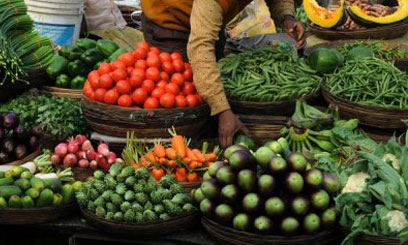
Anti-COVID-19 restrictions among East Africa countries boon for Kenyan farmers

Restriction of movement between east African countries to curb spread of COVID-19 has come as a boon for Kenyan farmers, whose produce is currently selling at a better price as food demand surges.
The restrictions have seen a decline in food imports, allowing Kenyan farmers’ produce to dominate the market.
Kenya, Uganda and Tanzania have each limited movement of goods and people into and out of their borders.
While travel of people between the countries has been banned, movement of goods and cargo is allowed.
However, the transporters have to test for COVID-19 and get certificates to show they don’t have the disease.
The testing has occasioned delays, curtailing free movement of goods, thus creating a boon to Kenyan food producers.
Kenya imports a bulk of food produce from its neighbors Uganda and Tanzania. From Uganda, the country imports cereals, legumes, sugar and eggs mainly.
And from Tanzania comes fruits like oranges, lemons, pineapples and mangoes, onions, potatoes and tomatoes.
“It is a good time to be a farmer in Kenya because prices of commodities are now high due to COVID-19 restrictions. I produce eggs, at least 100 crates a day and for the first time, buyers are scrambling for them,” said Cornelius Mutuku, a farmer in Kitengela on the south of Nairobi.
Farmers growing onions and tomatoes are also enjoying the boom as imports from Tanzania remain restricted.
At Wakulima food market in the capital Nairobi, where most produce from Tanzania is usually offloaded for supply to other parts of the city, very few trucks from the country now deliver food at the market.
From about 40 trucks in a day to now less than 10 arrive daily due to the restricted movement, a trader said.
Beatrice Macharia, an agronomist with Growth Point, an agro-consultancy, observed that Kenyan farmers have been able to sustain the market amid limited imports due to good rains in the March to May season.
“The rains offered a boost in the production but in the long-term we still need the imports,” she said, adding good prices have cushioned farmer from high cost of inputs.
Kenya’s agriculture secretary Peter Munya on May 20 asked local farmers to use the window brought about constrained supply chains to reap from their ventures by supplying the market.
Kenya food imports topped 1 billion dollars in 2019, according to the Kenya National Bureau of Statistics, with the high imports blamed on erratic weather during the period.






